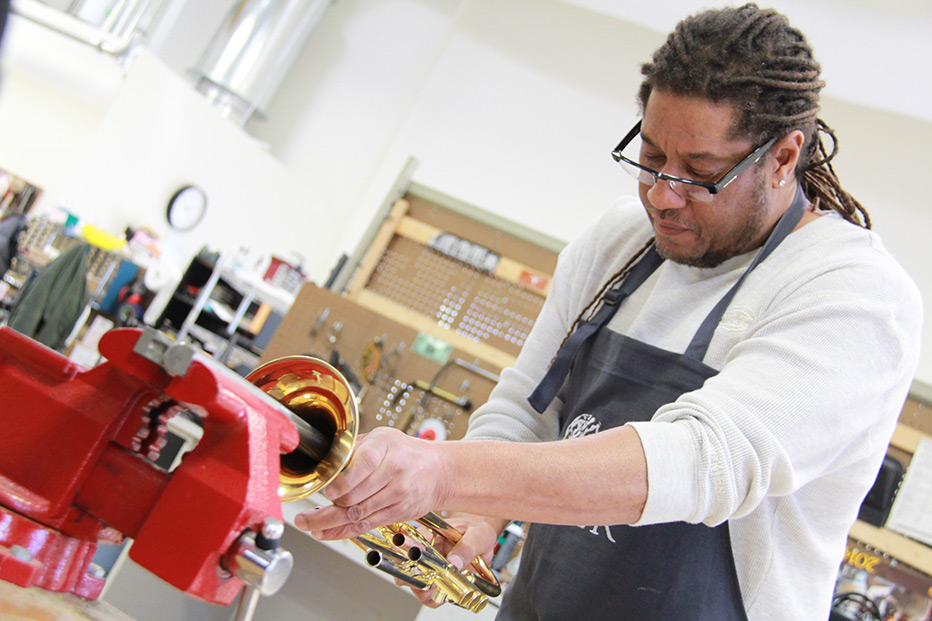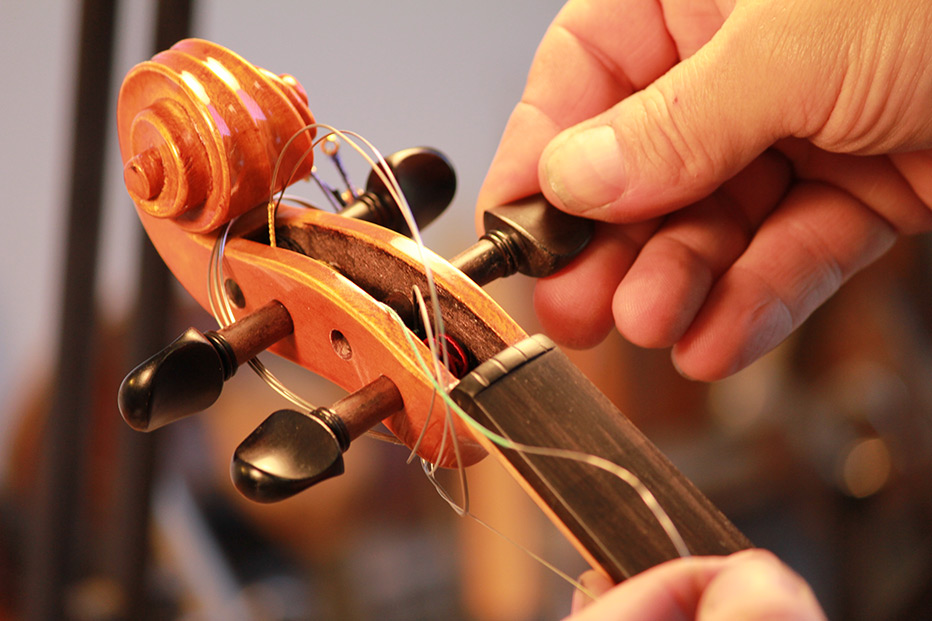April 09, 2015
How to Handle Making Mistakes During a Performance


Mistakes are an everyday part of life. From minor typos in your emails to forgetting the name of the person you just met, making mistakes is part of being human. Unfortunately, mistakes are bound to happen during a recital or performance- no matter how many times you’ve run through that piece of sheet music. You will make mistakes. It’s a reality that every musician must learn to accept. The big difference between professional and amateur performers isn’t necessarily the amount of mistakes they make, but in how they handle those mistakes. As long as you’re always paying attention to your playing and listening to the rest of the band, mistakes shouldn’t be a huge deal.
Find Your Place
In most cases, mistakes happen for one of three reasons: you lost your place in the song because you weren’t paying attention, you aren’t familiar enough with the material, or you had a temporary lapse in memory. Regardless of the reason, there’s no way you’ll be able to seamlessly jump back into the song without knowing where the rest of the band is. For this reason, one of the first things you should do when you make a mistake is take a breath and listen to what’s happening around you. Unfortunately, if you weren’t prepared in the first place, this approach won’t work. In the days, weeks, and months leading up to the recital, you should familiarize yourself with not only your part, but the parts of your other band members as well. This way, you’ll be able to find your spot by listening to the trumpet player even if you play the trombone.
Communicate with Your Bandmates
How often do you make eye contact with your bandmates? If you answered “never”, you’ve just identified another common cause of mistakes made during performances. The best, and in some cases the worst, part of being in a band is that every member contributes something to the group. If you aren’t completely in sync with each other, you’re essentially just going through the motions until one of you makes a mistake. Not only is consistent communication among band members the key to having a tight sound, but it’s especially crucial when things start falling apart. Did your vocalist start a bit too early? Is the drummer playing too quickly? Look around at the rest of the band and make sure they’re all aware. If you’re able to inspire communication and help others get back on track, they’ll be more likely to help you out when you’re the one who is making mistakes.
Don’t Be Super Obvious
Although mistakes can be frustrating and embarrassing, don’t let your temper get the best of you. When people come to see live music, they’re expecting to enjoy themselves. Watching someone pout, become angry, or run off the stage isn’t an enjoyable experience. The best way to handle making a mistake is to act as natural as possible. At the end of the day, your audience is on your side: after all, they went out of their way to come see your performance. They want to see you succeed and will forgive any error, as long as you’re sincere. Don’t apologize, don’t point out the mistake, and whatever you do- don’t make derogatory comments about yourself or your band. This can really dampen the mood and ruin the overall experience of your audience. Plus, nine times out of ten, the members of the audience have no idea you even made a mistake to begin with!
Learn From Your Mistakes
Whether it was you or a band member that made a mistake during a performance, be sure to regroup after the recital to talk about every mistake that was made and how they can be avoided in the future. Maybe a particular part was too technical for a certain member, or the director isn’t doing a good enough job. If you aren’t actively learning from your mistakes, you’re just setting yourself up to make more. Being able to ignore minor mistakes and keep playing is a skill that takes practice, so practice making mistakes graciously while at home. Getting used to just playing through mistakes at home will make it a lot easier to do so in front of a live audience.
How to Minimize Nervousness
Although it’s completely normal to be nervous before a performance, being too nervous can lead to mistakes- especially if your nerves are all you can think about. If you’re a ball of nerves every time you set foot on stage, you should make a conscious effort to be more comfortable. Some musicians keep a token of comfort nearby- stuffed animals work well for children, while older adults tend to favor wearing a sentimental piece of jewelry or their favorite pair of socks. Next, think of the audience as a single body of music appreciation instead of multiple people who are judging you. Focus on their warm, smiling faces and remember they’re here to enjoy your performance. Finally, the only way to truly overcome stage fright is to start performing in front of an audience as soon as possible. Ask your music teacher for information about local recitals, or head to your local coffee shop for an open mic night.
Before you put on a show, you’ll need to form a band. If you don’t have one already, check out our step-by-step guide on forming a band.







